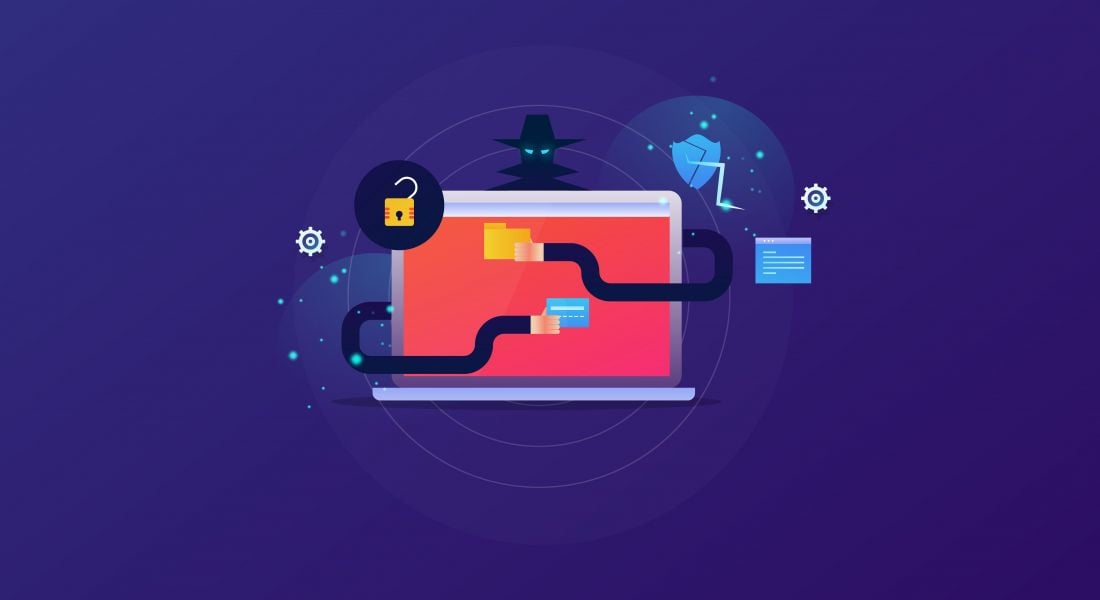In an era of heightened security risks, what are some of the red flags that indicate your work device has been compromised?
Staying cybersecure can feel like a full-time job and we all have an obligation to protect the integrity of our devices, ensuring a strong, frontline response against malware.
Since the advent of the internet the world has borne witness to unprecedented technological advancement. When we were buying wallpapers from the back of magazines to add to our flip phones and tying up the family landline to message a friend on Bebo, who could have predicted the innovations that were to come?
Even now in 2024 the capacity for transformation seems limitless, with new discoveries, particularly in the realm of artificial intelligence (AI), continuing to disrupt entire industries. But with this gift of knowledge comes uncertainty and very real challenges that have the potential to tear down all that has been built.
We like to think we are tech savvy and for the most part we are, but so are the people targeting our computers and we should all know the warning signs that our work devices have been breached.
Speed
A major sign that your device has been infected with malware, or is secretly running unauthorised programmes in the background, is a sudden decrease in performance speed.
If your laptop is taking too long to open applications or access files and folders, experiences lagging or randomly freezes, then it might mean nefarious programmes placed there by hackers could be working in the background to steal information, such as identification and financial details.
Like everything else, devices like laptops depreciate over time and they aren’t going to function in year five at the same level they did when you first bought them, so it’s important to evaluate if the speed issues you are experiencing are possibly due to a naturally overworked hard drive or wear and tear.
Unknown programmes
Sometimes when you start a new job and are given a company laptop or computer to work from, it can come with programmes pre-downloaded that you may be unfamiliar with. If you look after your devices, they can last for a considerable length of time meaning over the years dozens of programmes are downloaded for various reasons.
If you notice that random or unknown apps suddenly start running when you turn on your laptop, or there are unexpected programmes operating in the taskbar or notification tray, this can be a sign that the device has been hacked or infected with malware.
If attempts to uninstall the programme fail, then it is possible the device’s security has been compromised.
Redirecting traffic
If when searching for a local business, you type in the company name and you are redirected to an alternative site on an unsecure HTTP, there is a chance that your device has been infected with malware.
Redirection is a tool hackers use to send you to another URL after you have typed in whatever it is you are looking for, bringing you to a page likely filled with adware, keyloggers and trojan horses, where it is significantly easier to exploit your device’s vulnerabilities.
Pop-up messages
A cardinal rule when it comes to protecting your device from suspicious and harmful behaviours, is never click a link or prompt that you are even the tiniest bit unsure of.
Not every scam is blatantly obvious with incorrect details, poor spelling and clearly risky links. Some are sophisticated and can appear as though they are from trusted sources, even appearing to be from your antivirus software provider.
If you are receiving frequent pop-up messages from an antimalware service, asking you to click a link or recommending you take some form of action, there is a chance that this is the malware itself. You should close the browser and run a test using the antivirus software you know you installed correctly, to see if there is a legitimate threat to the device.
Unauthorised emails
A sign that your device has been subject to a breach and one that can be easily confirmed, is if you are hearing from your colleagues that they are receiving spam mail that appears to be coming from your account. Hackers may target your email account and by extension the names and contact information you store there, utilising this data to further spread malware.
A sign that the company you work for may have experienced a lapse in security is if you are receiving spam emails seemingly from your boss, usually along the lines of “Hi there, I am in an important conference and can not call right now. Please can you take a look at this file”, etc.
Like with a physical infection, computer viruses spread. It’s not just yourself you are protecting, but also your co-workers, your employers and potentially any person or organisation who engages with you online.
Find out how emerging tech trends are transforming tomorrow with our new podcast, Future Human: The Series. Listen now on Spotify, on Apple or wherever you get your podcasts.




